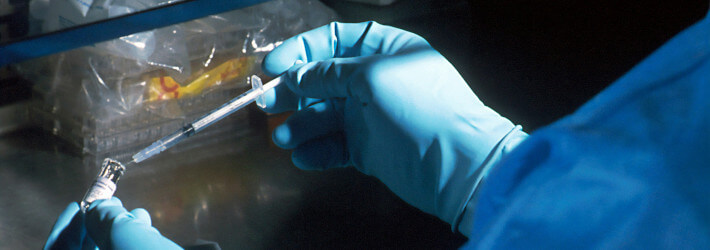On May 22, 2025, the CAFC affirmed the PTAB’s (Board) Final Written Decisions in Pfizer’s IPR2021-00925 and IPR2021-00926 finding all challenged claims of uniQure’s U.S. Patent No. 9,982,248 (“the ’248 patent”) unpatentable (CAFC 23-1404 and 23-1405), and in Pfizer’s IPR2021-00928 finding all challenged claims of uniQure’s U.S. Patent No. 10,465,180 (“the ’180 patent) unpatentable (CAFC 23-1406). The patents relate to uniQure’s gene therapy Hemgenix® (etranacogene dezaparvovec-drlb), indicated for treatment of certain patients with hemophilia B. The ’248 and ’180 patents claim viral vectors that encode for mutated versions of the coagulation Factor IX (FIX) gene, and methods of treating patients with blood clotting disorders using these vectors.
The CAFC found that the Board committed no legal error and that substantial evidence supported its opinions, noting the Board’s thorough analysis that spanned over 150 pages. In affirming the Board, the CAFC focused on the Board’s finding that the claims of the ’248 patent are obvious, uniQure’s objective evidence of nonobviousness, and the Board’s finding that the claims of the ’180 patent are anticipated.
With respect to obviousness, while it was undisputed that the prior art taught each limitation of the independent claims, and that a person of ordinary skill in the art (POSA) would have had a motivation to combine the references, uniQure argued that a POSA would not have had a reasonable expectation of success. The Board found Pfizer’s experts and the language of the ’248 patent persuasive in showing that a POSA would have a reasonable expectation of success using the “conservative” substitutions claimed in the patent, despite gene therapy being an unpredictable art. The CAFC found no merit in uniQure’s arguments that the Board’s opinions were tainted by impermissible hindsight, and that the Board violated the Administrative Procedure Act (APA). It also agreed with the Board that there was substantial evidence from Pfizer’s expert to support the obviousness of the dependent claims.
With respect to objective indicia of nonobviousness, particularly long-felt need, praise, copying, and unexpected results, the Board found, and the CAFC agreed, that uniQure failed to demonstrate the required nexus between its objective evidence and the challenged claims, and even if there was some nexus, it was weak given the evidence was not commensurate with the scope of the claims.
Addressing uniQure’s anticipation arguments, the CAFC found that substantial evidence supported the Board’s finding that the prior art disclosed all of the elements of the ’180 patent’s claimed invention because a POSA, reading the prior art reference, could at once envisage the claimed embodiment, given the prior art disclosed a limited class of two or three preferred amino acid substitutions. The CAFC also agreed with the Board that the prior art embodiment was presumed enabled despite not being claimed, and that the presumption had not been rebutted.
For more information on gene therapies, biologics, and biosimilars, please visit BiologicsHQ.
____________________________________
The author would like to thank April Breyer Menon for her contributions to this article.


